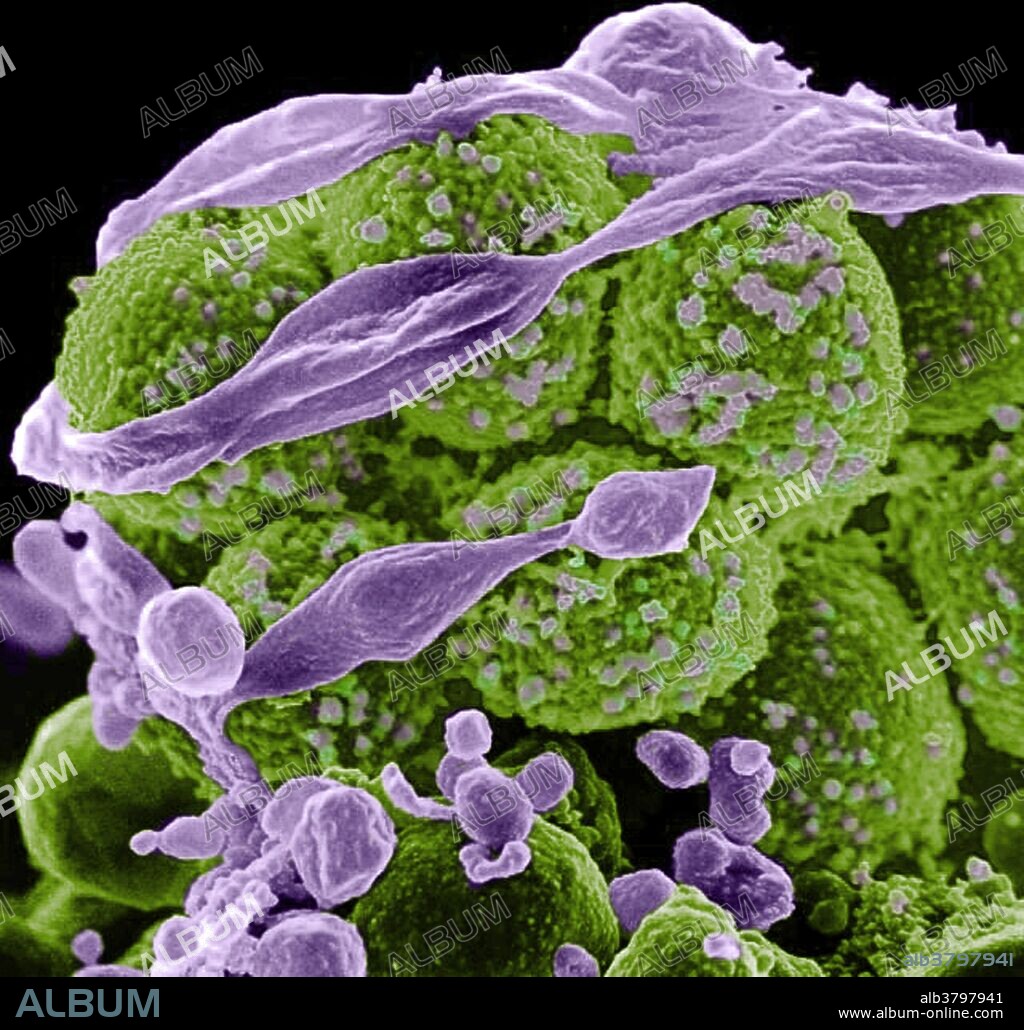alb3797941
MRSA, Staphylococcus aureus Bacteria, SEM

|
Añadir a otro lightbox |
|
Añadir a otro lightbox |



¿Ya tienes cuenta? Iniciar sesión
¿No tienes cuenta? Regístrate
Compra esta imagen.
Selecciona el uso:

Título:
MRSA, Staphylococcus aureus Bacteria, SEM
Descripción:
Ver traducción automática
Scanning electron micrograph of methicillin-resistant Staphylococcus aureus bacteria (round items) killing and escaping from a human white cell. Methicillin-resistant Staphylococcus aureus (MRSA) is a bacterium responsible for several difficult-to-treat infections in humans. It is also called multidrug-resistant Staphylococcus aureus and oxacillin-resistant Staphylococcus aureus (ORSA). MRSA is any strain of Staphylococcus aureus that has developed resistance to beta-lactam antibiotics, which include penicillins and cephalosporins. Strains unable to resist these antibiotics are classified as methicillin-sensitive Staphylococcus aureus, or MSSA. The development of such resistance does not cause the organism to be more intrinsically virulent than strains of Staphylococcus aureus that have no antibiotic resistance, but resistance does make MRSA infection more difficult to treat with standard types of antibiotics and thus more dangerous. MRSA is especially troublesome in hospitals and nursing homes, where patients with open wounds, invasive devices, and weakened immune systems are at greater risk of infection than the general public.
Crédito:
Album / Science Source
Autorizaciones:
Tamaño imagen:
3300 x 3150 px | 29.7 MB
Tamaño impresión:
27.9 x 26.7 cm | 11.0 x 10.5 in (300 dpi)
Palabras clave:
BACTERIA • BACTERIANA • BACTERIAS • CIENCIA • COLOREADA • EM • ESTAFILOCOCO • GLÓBULOS BLANCOS • HISTOPATOLOGÍA • LEUCOCITO • MEJORA • MICROBIOLOGIA • MICROGRAFIA • MICROSCOPIA • MICROSCÓPICO • MICROSCOPIO ELECTRÓNICO DE BARRIDO • MONADA • PATÓGENOS • PROCARIOTA • SANGRE DE CÉLULAS • SANGRE • STAPHYLOCOCCUS AUREUS • VASO SANGUÍNEO
 Pinterest
Pinterest Twitter
Twitter Facebook
Facebook Copiar enlace
Copiar enlace Email
Email
